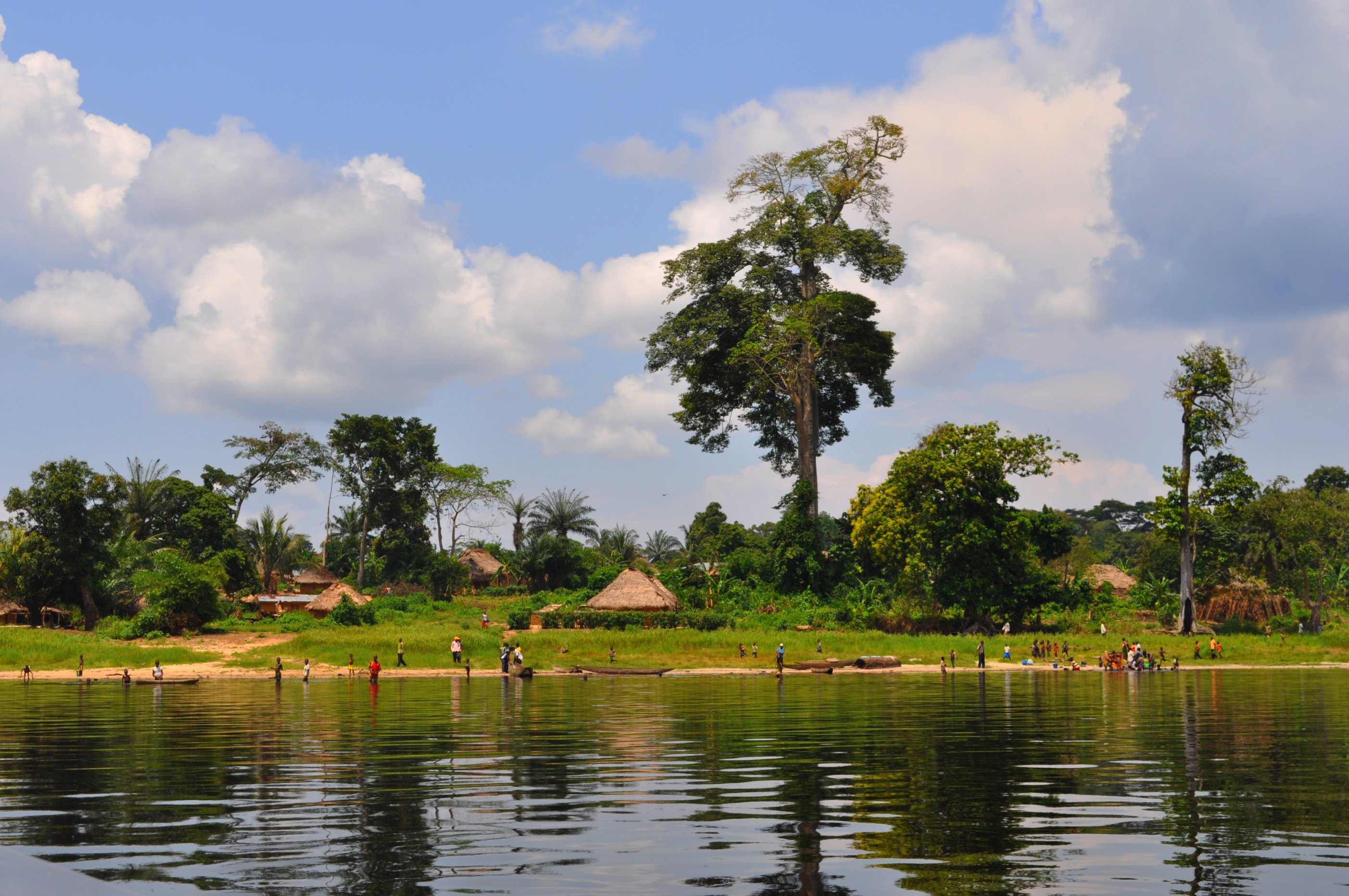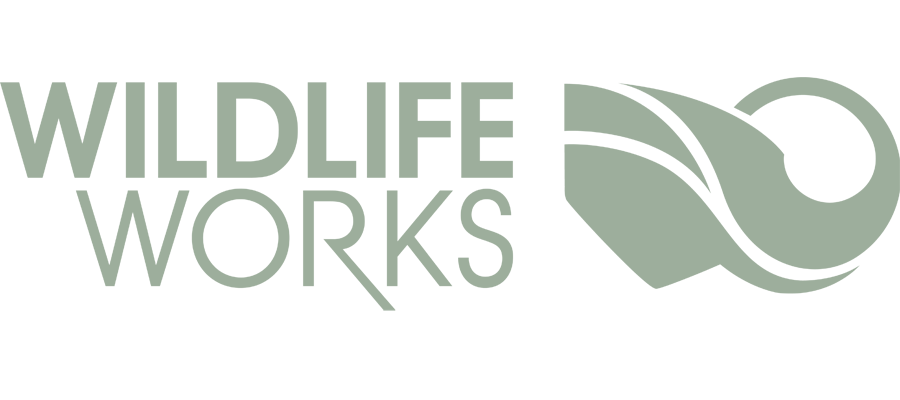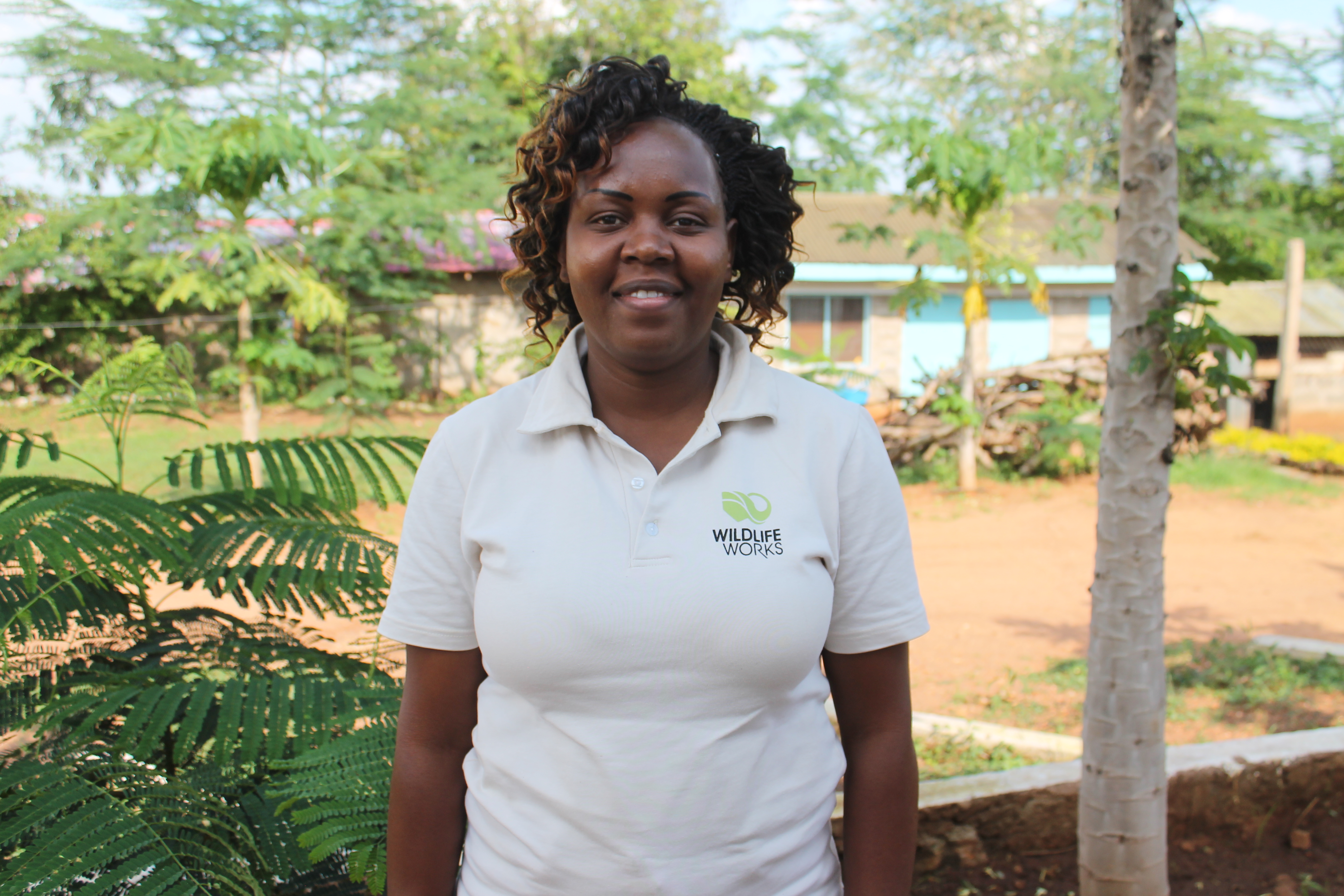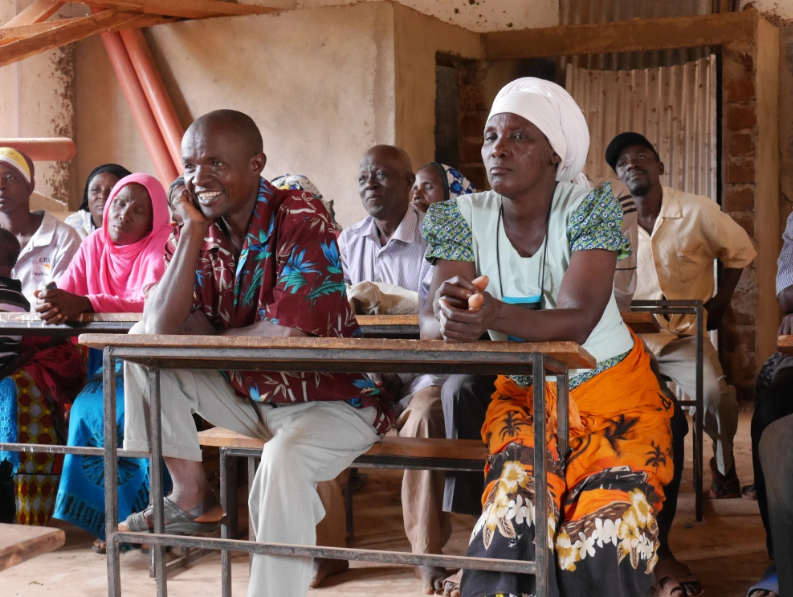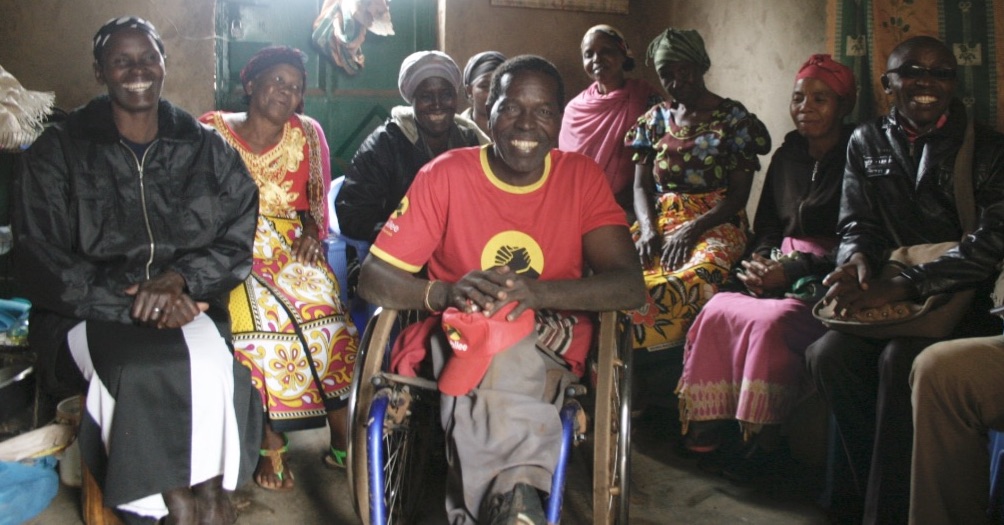
Tackling Barriers for Persons with Disabilities
By Jane Okoth
On a rainy day in Mwachabo location approximately 60 kilometers from Wildlife Works’ headquarters, Matei Mtuku is in a jovial mood whilst welcoming staff from Wildlife Works in his home. The cheerful middle aged man who is disabled and wheelchair bound is the Chairperson for Mwachabo Disability Group, a group consisting of disabled people and caregivers who are raising children with disabilities. Groups of women begin to stream in his compound, and after exchanging greetings, everyone is given a chair as they begin their meeting. They are here for a discussion with Wildlife Works about various opportunities available to them.

As the meeting starts, the women begin by sharing their experiences when caring for their children born with disabilities and encouraging one another. This is one of the many meetings organized every week by the Wildlife Works Community Relations team at various locations in the project area. Throughout the last year, Martin Mwarigha, a Community Relations Officer at Wildlife Works who is visually impaired, has been visiting various groups consisting of caregivers and disabled people. The workshops share information on members’ eligibility to receive financial benefits from the government and how members can access them. They also provide financial independence training, as well as giving details on how children with disabilities can access education.
Growing up with a visual impairment, Martin knows all too well how it feels to cope with such challenges. Martin grew up with only partial sight, but during his teenage years, he developed a disease that caused him to lose his sight completely. But that did not deter him from pursuing his dreams. With the help of Rob Dodson, the late VP of African Field Operations at Wildlife Works, he attended Thika High School for the Blind. This motivated him to work with the community, thus joining Wildlife Works’ Community Relations team on their weekly update meetings on REDD+ projects.

“I know how tough is it to live with a disability and that is why I always encourage people who are living in the same situation,” he says. With the assistance of Martin, Wildlife Works helps to promote and ensure equalization of opportunities for persons living with disabilities.
In addition to that, Wildlife Works also works with Hadithi, a local craft support Community Based Organization that consists of about 500 people, mainly women, who weave baskets and make other crafts. The CBO members are financially empowered through increased markets for their products, building capacity and improving the quality of their products. One good example of a group that works under Hadithi is the Buguta Disabled Group; a group of men and women involved in producing baskets and beaded jewelry. The group has been working with Wildlife Works since 2011, supplying them with baskets for their soaps. Wildlife Works and Hadithi also help to market their products to retail shops, and connect them to international organizations.
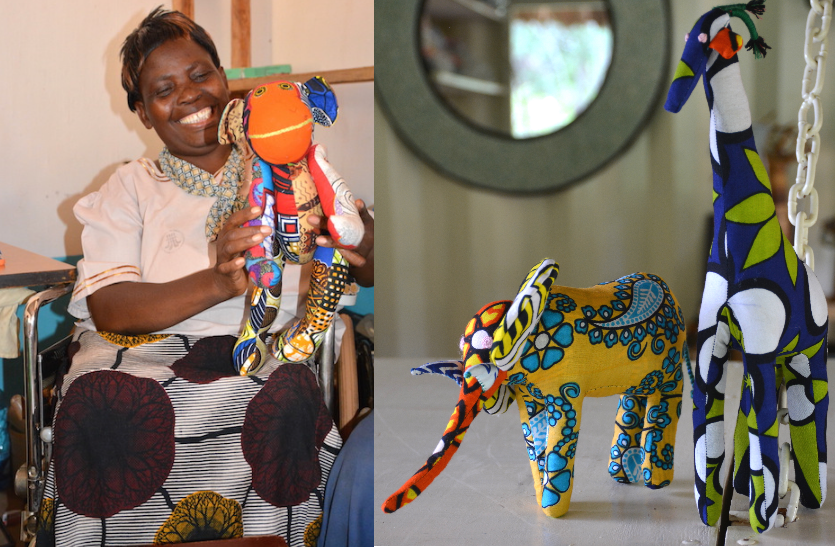
According to a report by the World Health Organization, about 15% of the world’s population live with some form of disability. In Kenya, the Ministry of Health and the National Council for Persons with Disabilities announced that it registered close to 350,000 persons living with disabilities in 2017. Worse still, the numbers are likely to be much higher due to some families hiding disabled people out of shame and fear of stigmatization.
At Wildlife Works we acknowledge the importance of giving equal opportunities to all individuals.
